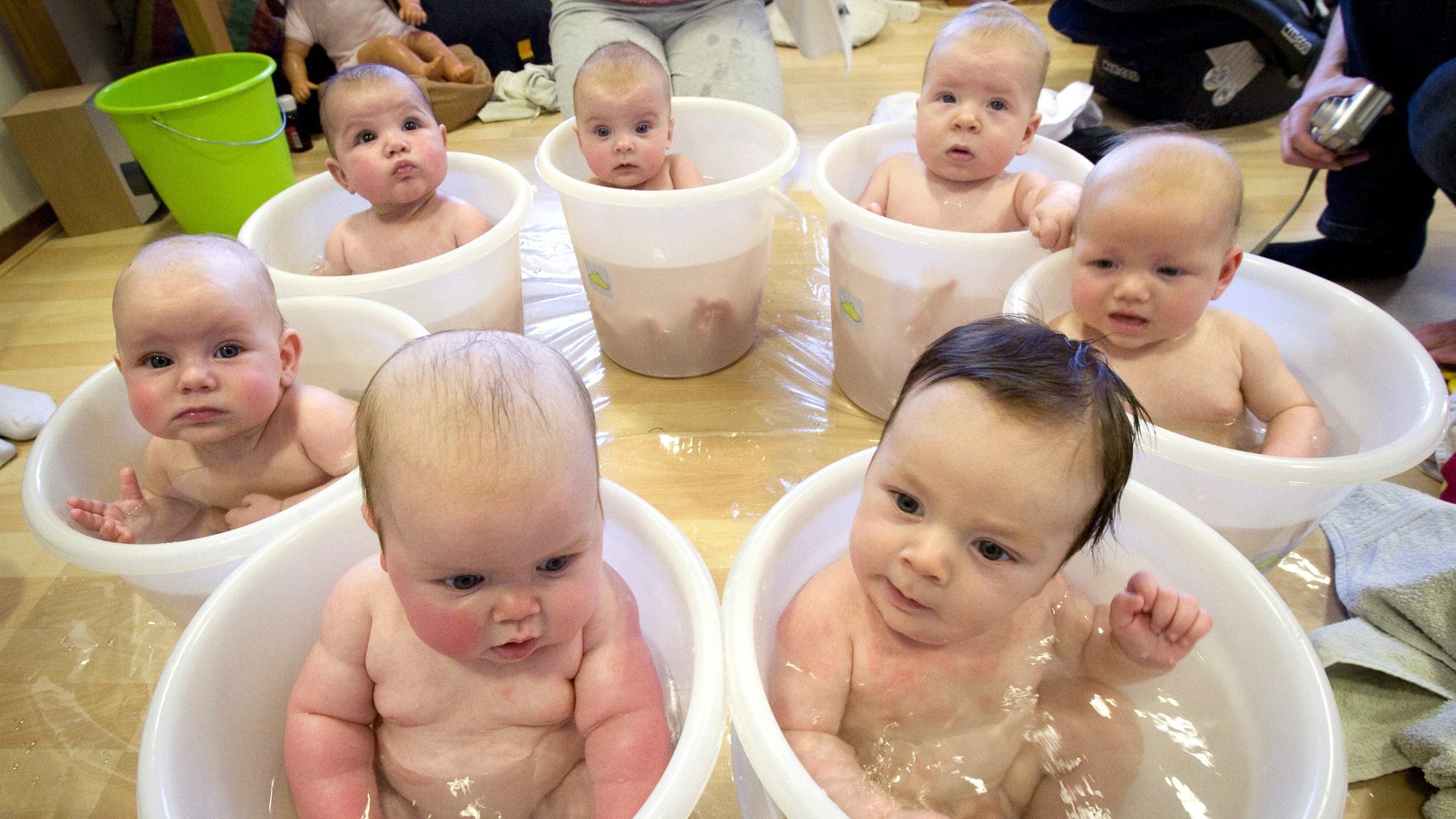Babies expect people to be fair. They also expect them to be prejudiced
As anyone who’s spent time around small children knows, kids are keenly attuned to what’s fair and what’s not. Babies too young to speak in full sentences will balk at a person being rewarded for a chore someone else clearly did, or at someone who is passing out treats in an unequal way. By the age of 6, kids would rather throw extra cookies away than see someone get more than their fair share.


As anyone who’s spent time around small children knows, kids are keenly attuned to what’s fair and what’s not. Babies too young to speak in full sentences will balk at a person being rewarded for a chore someone else clearly did, or at someone who is passing out treats in an unequal way. By the age of 6, kids would rather throw extra cookies away than see someone get more than their fair share.
Children expect fairness—when there are enough resources for everybody. When there aren’t, however, they display behavior in line with humanity’s more tribalistic instincts. It turns out that even very young children expect the individual doling out the items to prioritize recipients who most resemble the giver.
In a new paper published today (Feb. 26) in the journal PNAS, a group of researchers tested expectations of fairness in 120 children ranging in age from 18 to 30 months old. (Sixteen other children had to be excluded from the study, a charming and very real footnote notes, “because they were fussy, distracted [e.g., wanted a cookie], active, or angry at the puppet distributor.”)
For those children able to participate, researchers held up two puppets: a giraffe and a monkey. Then they had a third puppet—this one a monkey—come in with a tray of cookies.
In one scenario, the tray held two cookies. In another, the tray held three. If the monkey brought three cookies in, the babies stared longer if the monkey did anything other than divide the cookies equally, giving one each to the other monkey and the giraffe, and keeping one for itself. (Babies look longer at things that violate their expectations; the length of their gaze helps researchers measure their surprise or interest.) But if there were only two cookies, and the monkey distributor gave any to the giraffe instead of keeping them for itself and its fellow monkey, the babies gaped.
This actually didn’t surprise the researchers; it bolstered the findings of previous studies. “There is a lot of research suggesting that when you have unequal resources, children are more likely to give the extra resource to the ingroup member,” says Lin Bian, a postdoctoral scholar in health psychology at Stanford University and the study’s lead author. “It’s likely to be an evolutionary adaptation,” she said, from an earlier era of human development when people depended on small family groups for access to resources more essential than cookies.
Children develop an awareness of group differences early, and use them as a default to determine their response to situations where there aren’t enough resources go around. In one previous study the authors cited, researchers showed children ages 3 to 5 photos of two other kids who differed from them either in race or gender, and then asked the young study participants how many treats each child in the pictures should get. When the kids had two treats to give away, they doled them out equally. But when there was only one, they were more likely to give the single treat to the pictured child who shared their gender or race.
Are kids doomed to superficial prejudice? Hardly. As they get older, their concept of what an “ingroup” means becomes more complex, and they are better able to understand others’ needs and perspectives. Making decisions that are both fair and empathetic is a trait that parents can definitely pass on to their children.